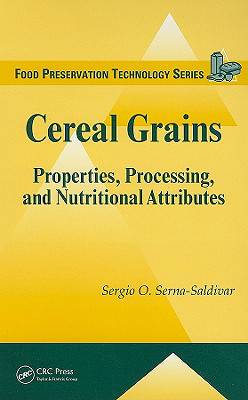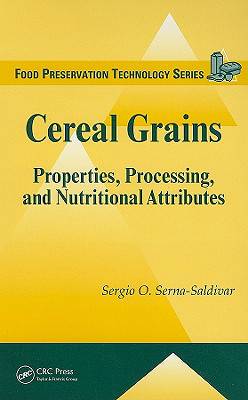
- Afhalen na 1 uur in een winkel met voorraad
- Gratis thuislevering in België
- Ruim aanbod met 7 miljoen producten
- Afhalen na 1 uur in een winkel met voorraad
- Gratis thuislevering in België
- Ruim aanbod met 7 miljoen producten
Omschrijving
While cereals remain the world's largest food yield - with more than 2.3 billion metric tons produced annually - consumer demands are on the rise for healthier cereal products with greater nutrition. Cereal Grains: Properties, Processing, and Nutritional Attributes provides a complete exploration of the scientific principles related to domestication, morphology, production, and storage of cereal grains. It also describes their physical and chemical characteristics and explains how these properties relate to industrial processing and nutritional value.
This single-authored textbook lays the foundation for subsequent chapters by first addressing the importance of cereals for mankind, the comparative chemical and physical grain properties of the various types of cereal grains, the morphology and grain anatomy of caryopses, and the physiology of fertilization, grain development, and germination. The book then covers grain storage, pest control, industrial dry milling, wet milling, and both dry and fresh masa industries. A discussion of processing, quality control, and the role of cereals in human and animal nutrition rounds out the book's complete coverage.
Each chapter includes a set of up-to-date references along with selected questions to bolster comprehension of the discussed concepts. The book also contains a glossary of 600 scientific and technical terms to aid in the understanding of words used throughout the text. Cereal Grains: Properties, Processing, and Nutritional Attributes was designed especially for students and lecturers, but it is also helpful as a guide for scientists, food product developers, and nutritionists working to stay ahead of the curve.
Specificaties
Betrokkenen
- Auteur(s):
- Uitgeverij:
Inhoud
- Aantal bladzijden:
- 794
- Taal:
- Engels
- Reeks:
Eigenschappen
- Productcode (EAN):
- 9781439815601
- Verschijningsdatum:
- 20/05/2010
- Uitvoering:
- Hardcover
- Formaat:
- Genaaid
- Afmetingen:
- 157 mm x 236 mm
- Gewicht:
- 1224 g

Alleen bij Standaard Boekhandel
Beoordelingen
We publiceren alleen reviews die voldoen aan de voorwaarden voor reviews. Bekijk onze voorwaarden voor reviews.












